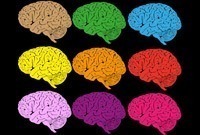Brain training via mindfulness, cognitive training, and/ or tDCS
 Several recent media articles highlight the growing interest in a variety of approaches to enhance the brain and the mind. The obvious emerging question, which we address at The SharpBrains Guide to Brain Fitness given that “one size doesn’t fit all” is, what works best for whom and for what?
Several recent media articles highlight the growing interest in a variety of approaches to enhance the brain and the mind. The obvious emerging question, which we address at The SharpBrains Guide to Brain Fitness given that “one size doesn’t fit all” is, what works best for whom and for what?
Mindfulness: Getting Its Share of Attention (The New York Times):
“The Marine Corps is testing Mind Fitness Training to help soldiers relax and boost “emotional intelligence,” the buzzwords of the hour. Nike, General Mills, Target and Aetna encourage employees to sit and do nothing, and with classes that show them how. As the high priestess of the fully aware, Arianna Huffington this year started a mindfulness conference, a page dedicated to the subject on The Huffington Post and a “GPS for the Soul” phone application with a built-in heart sensor to alert you when you’re calm or stressed…Even the most distracted are easing up and letting go. These days, Mr. Williams spends most of his time overseeing an online literary venture called Medium. The office holds companywide nature retreats and offers guided relaxation sessions twice a week. “Meditation always had bad branding for this culture — it seemed very hand wavy,” he said. “But to me, it’s a way to think more clearly and to not feel so swept up.”
Matching our cognitive brain span to our extended lifespan (Oxford University Press blog)
“Until recently, cognitive losses in healthy adults were viewed as an inevitable consequence of living longer. However, researchers around the world are discovering ways to reinvigorate overall brain health and reverse cognitive losses, giving specific focus to abilities that support independent living such as the capacity to reason, problem solve, and plan. Throughout our lifetime our brain remains highly malleable, an asset referred to as neuroplasticity… We found that the brain training strategies not only improved cognitive performance, but also induced beneficial physiological brain changes. These published findings show healthy adults can regain lost cognitive performance, improve blood flow in the brain, speed up communication between brain regions, and expand structural connections after brief training.”
Jumper Cables for the Mind (The New York Times):
“This couldn’t possibly be a good idea. On Friday the 13th of September, in an old brick building on 13th Street in Boston’s Charlestown neighborhood, a pair of electrodes was attached to my forehead, one over my brain’s left prefrontal cortex, the other just above my right eye socket. I was about to undergo transcranial direct-current stimulation, or tDCS, an experimental technique for delivering extremely low dose electrical stimulation to the brain. Using less than 1 percent of the electrical energy necessary for electroconvulsive therapy, powered by an ordinary nine-volt battery, tDCS has been shown in hundreds of studies to enhance an astonishing, seemingly implausible variety of intellectual, emotional and movement-related brain functions. And its side effects appear limited to a mild tingling at the site of the electrode, sometimes a slight reddening of the skin, very rarely a headache and certainly no seizures or memory loss. Still, I felt more than a bit apprehensive as I prepared to find out if a little bit of juice could amp up my cognitive reserves and make me, in a word, smarter.”
To learn more:


